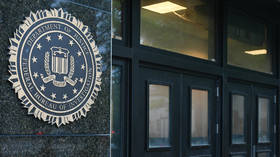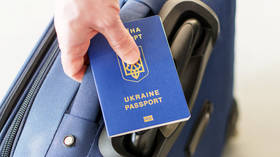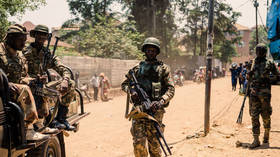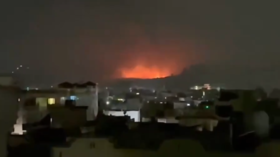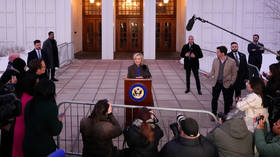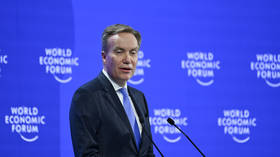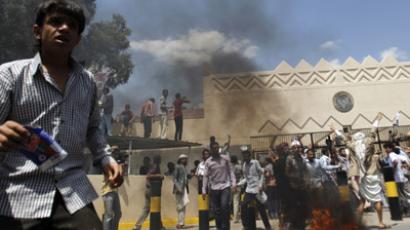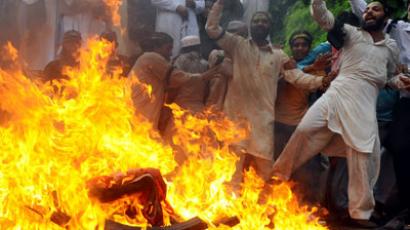‘West miscalculated the potential of Arab World anger’
The recent wave of anti-US protests is a wakeup call to Western governments that the Arab World will not tolerate outside attempts to shape the “Arab Awakening” to foreign benefit, diplomat and former spy Alastair Crooke told RT.
In his thirty years of British government service, Alistair Crooke has operated in trouble spots all across the globe – from helping the Mujahadeen fighters in Afghanistan against the Soviets, to working with rebel political groups in Northern Ireland, Cambodia and Colombia. As a former EU special envoy to the Middle East, he has brokered a number of ceasefires between Israel and the Palestinian movements, Fatah and Hamas. He now serves as the director of the conflicts forum in Beirut, where RT sat down with him for an exclusive interview.RT: Well, is the wave of recent violence, the anti-American wave of protests across the Middle East – do you see that as a coordinated effort or perhaps just a reaction to what’s going on on the ground?Alistair Crooke: It seems to me that what happened in Libya was well planned and well-conceived. I mean very well planned, and was certainly not something that happened just out of the blue. And it coincided, of course, with the anniversary of 9/11, and seems to have been more serious. I don't think that necessarily suggests that everything else that has…that occurred during this period was therefore coordinated or well-designed or well planned. What it did touch was a real latent sense of anger at what people see as the continuing aggression (as they see it) against their traditions, against their culture, against their way of being in this region by western states.The recent events, the sudden outbreak of Salafist violence in Libya itself, in Benghazi, the very seat of what America saw as the new era emerging. This outbreak will cause the West cumulatively to begin to question and start the process which they need to do, which is really to reassess what actually is going on. It's not the awakening that people thought. It's not simply a popular impulse of the oppressed against the oppressors. It’s far more than that, and what we are seeing is the overlay of the dynamics. Here it is that Gulf States -Saudi Arabia and Qatar and other Gulf States- that are trying to create a Sunni block in the western lands of Islam, as they try to create a Salafist-Sunni block in the eastern lands and have succeeded. Now it’s the turn of Syria. And it’s causing huge turmoil, and huge internal conflict within the region.RT: Well, referring to the killing of the US Ambassador in Libya, US Secretary of State Hillary Clinton has remarked, “how could this happen in a country that we helped liberate?” What are the US foreign policy makers missing when it comes to their support or interfering in countries with a complicated stance toward the West?AC: Indeed I think it is causing a real sense of anxiety and a sense of shock in the US widely, because this whole narrative that somehow the awakening was going our way was reflecting… and you know much of that was simply based on this rather facile narrative promoted by the mainstream western press saying: look they're using Twitter and Facebook and therefore it must be western in its orientation. Well, look, of course you find the Salafist groups are using Twitter and Facebook, but not necessarily to promote western values. But I think that gave it the sense that somehow this is flowing in the West’s direction and it should be a big wakeup call to western states.For the moment we see a tacit, if you like, alliance between these radical elements and the United States in bringing down Assad and bringing down Gaddafi. But when that's finished, where will their anger turn? Where will their objective turn? It will turn precisely on Israel and America again.The West is living. I've seen for 25 years people think they're using the Salafists as simple pious people who don't understand politics to their end only to find the Salafists use them for their end. And I fear that this is happening. They will find that it will turn on them and will bite them just as it did 25-30 years ago.RT: Well what lessons has the US failed to learn when it comes to its experience in Afghanistan? And how does that relate to what’s going on right now?AC: Well, I remember in 1987 going and talking to the Americans about it and saying, 'you know, you need to really understand that there’re big differences between these groups that are taking part in this alliance that you’ve put together, and you have to understand some have credibility and real roots within the community but others do not at all – they're quite different.' And the Americans and a senator – I remember at the time -turned to me and said: 'Listen Alastair. Thank you for the advice in warning us about certain groups in Afghanistan, but look I just want to tell you, they're the ones who really kick communist ass.' And so we looked away, we didn't want to know what was happening. We preferred not to look because it was so popular domestically with President Reagan, with Mrs. Thatcher. It was going down well.Now we’re in the era where we're kicking Gaddafi's ass. We're kicking President Assad's ass – it’s a popular sport in the west. And good domestically. So we don't look. Who are these groups in Syria? Who were the groups in Libya? What really are their objectives? Are their objectives truly to bring about -as some in the west imagine- a simply more liberal society, a more democratic and easy breathing society? Of course not.Just as 25-30 years ago people didn't want to hear, it was unpopular to say these things, so it’s been extremely unpopular here.RT:So are you saying that the West miscalculated, chose the wrong alliances perhaps?AC: I think that they miscalculate totally what was happening. They chose, they created a narrative for themselves. It was a constructive narrative, that really all of this in the initial awakening – which was popular and had real popular impulse in it – was a somehow vindication of European values, of American values. And they misread this totally – it was not. It was in fact -and you heard this- it was a protest against injustice and inequity. It was a protest against neoliberalism. It was a protest against the absolute support by the west for Israel and its policies against the Palestinians. That may not have been at the forefront of all of the clamor, but the reason that these dictators like Mubarak had been so unpopular, was precisely because he was the instrument of the West, the instrument of suppression of the Palestinians. And that’s what always lay behind the protests that took place so it was not an endorsement of Western values, it was a reaction. And I think the recent violence that we've seen, against western embassies –not just Americans, western- sharply underlines symbolically the limits of western influence in the region. This is pushback against their attempt to shape and mold the so-called Arab Awakening for their own purpose. To install their own people, their own successors, for their own interests in this area.RT: Well, when it comes to Syria how do you see the conflict there playing out? Is peace at all possible at this point or have we surpassed that opportunity?AC: I don't think until now we've had a window, There’s not really been real window for negotiations because the West has not wanted the opposition to seriously negotiate except on a complete collapse of president Assad and the Syrian system…I think there may be a window arising in the near future and I do hope that the West will -instead of ridiculing and belittling Russia's attempts to try and have a negotiated outcome- they instead support it. Because Russia plays a crucial role. If there is ever to be a negotiation between the two parties, there will have to be guarantees, for the opposition. And who is going to give the guarantees? The UN? Absolutely not. The West? Turkey? Of course not. Only Russia can really play the crucial role in resulting. I'm sorry but a UN negotiator, the UN has no standing or real legitimacy in Syria among either side at this time.RT: And are you worried about the ongoing violence in Syria spilling over here into Lebanon and potentially fracturing the society here?AC: Of course. Everyone is worried and it already has had effect here in Lebanon. It has polarized the politics of Lebanon. It has resulted in conflicts that have taken place in Tripoli. It has resulted in skirmishes that have happened in Beirut, and in the south –in Sidon – we see reflections of this taking place.And Lebanon is, of course, vulnerable to this type of sectarian conflict. But so is Jordan, so is Iraq. And we are seeing the same effects also taking place. So it is affecting the whole region. And if it continues, and of course if the money and the weapons continue to be poured into Syria, it will of course continue for a certain extent. No government can stop two or three people and car bombs. If it does continue, the tensions will increase, but they may explode outside Syria. In fact, I think in many cases at this stage, it’s the states outside that are more vulnerable –the neighbors of Syria- that could be said to be more vulnerable than Syria itself to conflagration and to civil war.RT: Well, Israel remains surprisingly untouched –it would seem at least on the surface- by the rise of radical Islam. Do you expect that to continue, and how do you see this playing out?AC: I think at the moment that it’s quite true, that the Palestinian issue is almost obscured –hardly even on the agenda. But of course, I don’t believe that this will persist. I believe that the Palestinian issue has been so crucial to the self-identity of so many states –whether it’s Egypt, whether it’s Syria itself- that when things settle down, the Palestinian issue will of course re-emerge. And of course, Israel is not unaffected; it may not be feeling the effects now, but look. What’s happened has been as dramatic a change as South Africa experienced all those years ago, at the time of the implosion of the Soviet Union. Suddenly, Israel is now surrounded, in Egypt, and perhaps soon in Jordan and elsewhere, by a very different region from the one in which it previously existed.



